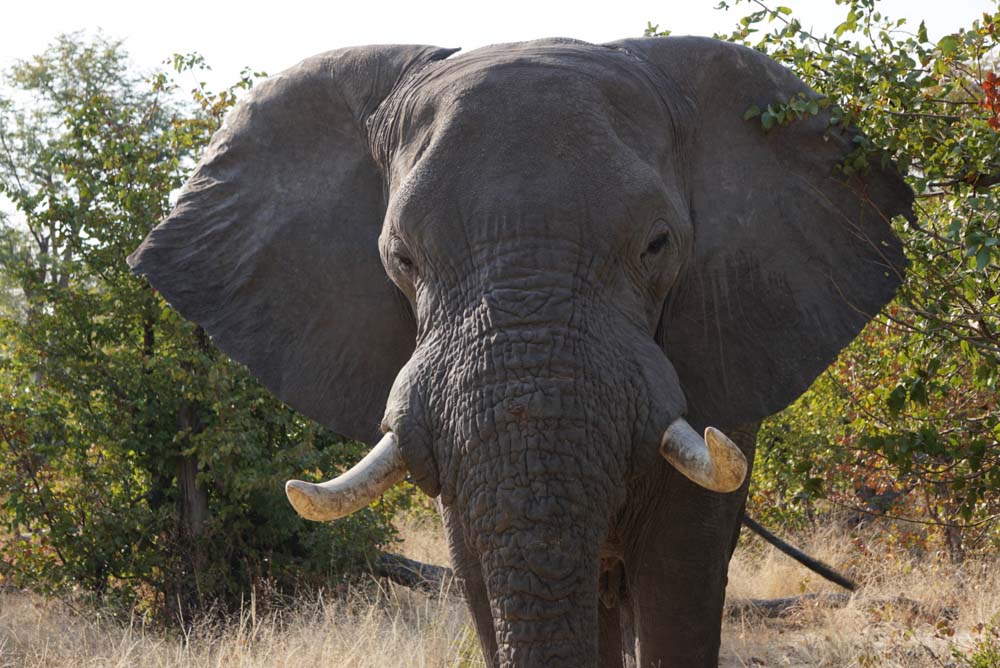1) Hi Nada, can you tell us what you've been up to since graduating from THINK Global School in 2022? Since graduating in 2022, I've been pursuing a passion I found while at TGS, sustainability, and I am currently majoring in engineering in renewable energy systems at Al Akhawayn University, in Ifrane, Morocco. But there is way more than that! I've had a chance also to explore the world of...
Read More“Quiet!” screams Craig, our game drive guide, in a whispered tone. Seconds after, silence overcame the vehicle. The loud conversations turned into murmurs and eyes glistened with curiosity, looking here and there for even the smallest clue. The safari vehicle suddenly accelerated like a cheetah, the wind rushing onto our faces and sand filling our hair. I could feel the adrenaline rush through my body and why wouldn’t it have? We were, after all, in pursuit of a lioness.
In a few minutes, there we were with two other safari vehicles on either side: right in front of us, in the middle of some bushes surrounded by short Mopani trees, lay an adult lioness. She sauntered around with pride, her dark ochre skin a patchwork of scars and bruises from the battles she had won for survival.
I am Zaki, a world traveler in pursuit of becoming a global citizen while studying at THINK Global School (TGS), the world’s first traveling high school. I travel the world with my fellow students and our educators, and in every term we work with local experts to learn about the history, culture, and socioeconomic aspects of our host country.
During our term in Botswana we were exposed to the African bush to learn about the environment and the human/wildlife conflict through game drives and research studies, which were conducted under the guidance of our educators and experts who were present at our camp. We started our travels in Gaborone, from where we traveled to the Tuli district and then to the Okavango Delta.

Zaki listens to a classmate’s point of view
Botswana, the African leader in wildlife conservation. I came to the country to witness the usual tourist attractions it was known for, but to my surprise what affected me the most were the people, the culture, and the socioeconomic problems the country is facing. We were at the Tuli Block doing morning game drives seeing exceptionally charismatic animals, but behind all the charisma lie problems like poaching, human/ wildlife conflict, and all kinds of environmental dangers. The Okavango Delta has its own small world of creatures with unseen beauty, but even though it’s the world’s greatest inland delta, it’s endangered. Right now, as I’m sitting in the middle of the Mababe floodplain where we have been doing our conservation research for the past few days, I have changed from a person who came to explore the wildlife of this country to a concerned individual.
The overpopulation of humans is a direct conflict with the natural environment all around the globe. Africa is a magnificent piece of land, but it is slowly decaying away due to the same reasons. Global warming is melting away our poles and causing rising temperatures, but at the same time there are people who think of global warming as a false phenomenon; the most recent example of this being when President Donald Trump pulled the United States of America out of the Paris Climate Accord. In the past few decades, the immediate rise in the human population has brought our natural environment and the human species to a place where both are having deep impacts on one another. There are places now where we need to make a choice between the natural environment or human development.
This situation makes me wonder, if Darwin was alive today and traveled through Africa, how would he explain the evolution that has occurred? Habitats are becoming smaller which means now a lion has to share his hunting ground with a farmer who is using it for his cattle. The increase in the human population has caused a drastic decrease in the animal population, and now to prevent that we have begun extreme hunting bans so abruptly that instead of doing good they have become a problem themselves. While trophy hunting has no moral ground and deserves a ban, the same law has the adverse effect of forcing a local subsistence hunter in the village into starvation, too.

Elephants are one of several threatened species in Botswana. Photo by Angie Tenebrini
On the other hand, the western influential powers, like the United States of America, who are the foremost advocates for environmental conservation, are the ones themselves who are the largest industrial polluters. Acknowledging the fact that this whole situation we are facing right now is a deep-rooted, complex problem, we as a species go head-to-head with wildlife and the natural environment every day; from starting our car’s engine in the morning to turning off the light bulb at night, every single second of our lives uses this planet’s resources, and it all adds to the carbon footprint. Eventually, civilization is going to hit every corner of the planet, if it hasn’t already, and in this continued growth as a species, we need to determine ways to sustain the natural environment, to sustain our own primal existence. We are a part of one system as two dependent bodies, humans and the natural environment, dependent on each other for survival. The irony in all of this is that we are all equally responsible for the deprivation we have caused to this planet, yet no one has the courage to own it.